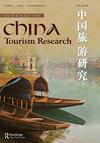小城市生态旅游发展:来自澳门的启示
IF 1.3
Q3 HOSPITALITY, LEISURE, SPORT & TOURISM
引用次数: 0
摘要
本文章由计算机程序翻译,如有差异,请以英文原文为准。
Ecotourism Development in Small Cities: Insights from Macao
ABSTRACT Small cities with fewer natural resources are relatively hesitant in developing ecotourism. However, ecotourism can be in any form anywhere, whenever all stakeholders involved in such businesses are ecologically, economically, and ethically responsible. This study therefore tries to identify challenges for small cities in developing ecotourism, by using the four criteria (i.e. ecotourism based in nature; learning opportunities; sustainably managed sites; and ethical and responsible activities). It also explains reasons discouraging small cities from ecotourism development based on the perspectives of involved stakeholders in nature-based tourism. Macao, with its small size, few natural resources, and the need to diversify tourism products to ease overcrowding issues in the urban touristic areas, was chosen as a case study to fill this research gap. The detailed evaluation of each criterion on ecotourism development and management presented a clear view of what has been done and not done properly in the city. This finding offers potential solutions for different public and nonpublic sectors who are attempting to embrace ecotourism.
求助全文
通过发布文献求助,成功后即可免费获取论文全文。
去求助
来源期刊

Journal of China Tourism Research
HOSPITALITY, LEISURE, SPORT & TOURISM-
CiteScore
4.00
自引率
10.50%
发文量
40
期刊介绍:
Journal of China Tourism Research (JCTR) is the official journal of the International Association of China Tourism Studies (IACTS) and is now indexed in the Emerging Sources Citation Index (ESCI)! JCTR is a truly international journal that publishes the latest research on tourism (all articles printed in English with Chinese abstracts) that relates to China and the Chinese. It provides a rich forum for exchange of fresh information and ideas among academics and practitioners; fosters and enhances cutting-edge research activities that advance the knowledge of tourism; and discusses the relevance of tourism to Chinese society. The journal encourages interdisciplinary scholarship and commentaries, aims at the highest intellectual level, and only publishes manuscripts that make significant contributions to the subject areas.
 求助内容:
求助内容: 应助结果提醒方式:
应助结果提醒方式:


